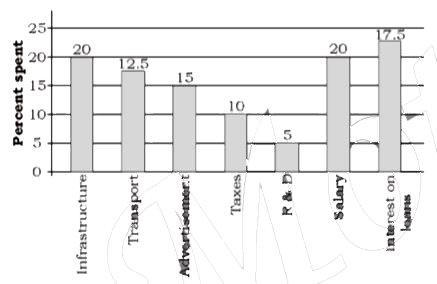What is REPO rate? How can it result in lowering the ratio of interest on loans?
Video Solution
Text Solution
The rate at which RBI repurchases govrenment securities from banks is known as REPO rate. When government repurchases the securities in return, the banks get cash to meet their short term requirement and they can give loan at low rate interest.
Whenever RBI wants to lower the interest rate, it reduces the REPO rate. It will become more clear from following cycle.
(##BSTXIIC10E02018_A01##)
As the REPO rate charged by RBI reduces, the money is available to banks at low rate, they pass the benefit to the end user by lowering the rate of interst on loan. Reverse REPO rate is opposite to REPO rate.
|
Topper's Solved these Questions
- FINANCIAL MARKETBOOK - SUBHASH DEYCHAPTER - FINANCIAL MARKETEXERCISE - MULTIPLE CHOICE QUESTIONS
10 Videos
- FINANCIAL MARKETBOOK - SUBHASH DEYCHAPTER - FINANCIAL MARKETEXERCISE - SORT ANSWER TYPE QUESTIONS
7 Videos
- FINANCIAL MARKETBOOK - SUBHASH DEYCHAPTER - FINANCIAL MARKETEXERCISE - EXERCISE
25 Videos
- FINANCIAL MANAGEMENTBOOK - SUBHASH DEYCHAPTER - FINANCIAL MANAGEMENTEXERCISE - Case Study
4 Videos
- MARKETING MANAGEMENT BOOK - SUBHASH DEYCHAPTER - MARKETING MANAGEMENT EXERCISE - FIVE MARK QUESTIONS
6 Videos
Similar Questions
Knowledge Check
What is the Repo Rate?
AIt is the rate at which RBI sells governement securities to banks.BIt is the rate at which RBI allows small loans in the market.CIt is the rate at which banks borrow money from the Reserve Bank of India.DIt is the rate which is offered by banks to their most valued customers or prime customers.The Bank Rate is the rate of interest at which the Reserve Bank of India provides loans to the:
AScheduled Commercial BanksBPublic SectorCCorporate SectorDForeign Institutional InvestorsIf the ratio of compound interest for 3 years and simple interest for 1 year on certain amount at certain rate of interest is 3.64:1 then find the rate of interest?
A22%B21%C23%D20%
Study the following graph carefully and answer the question

The ratio salary and interest on loans to infrastructure and transport will be
View SolutionWhat is Repo Rate Policy ? How does it work does it as an method of credit control ?
View SolutionHow can you have the effrontery––––––––––– to ask for another loan?
View SolutionMr. Patel borrowed Rs. 8000 from Mr. Chobey at simple interest. After 2 years he paid Rs. 800 more than what be borrowed and thus cleared the loan. What was the rate of interest ?
View SolutionAshok took a loan of Rs. 15000 for 3 years at simple interest. If the total interest paid is Rs. 2700. What is the rate of interest per annum?
View Solution
